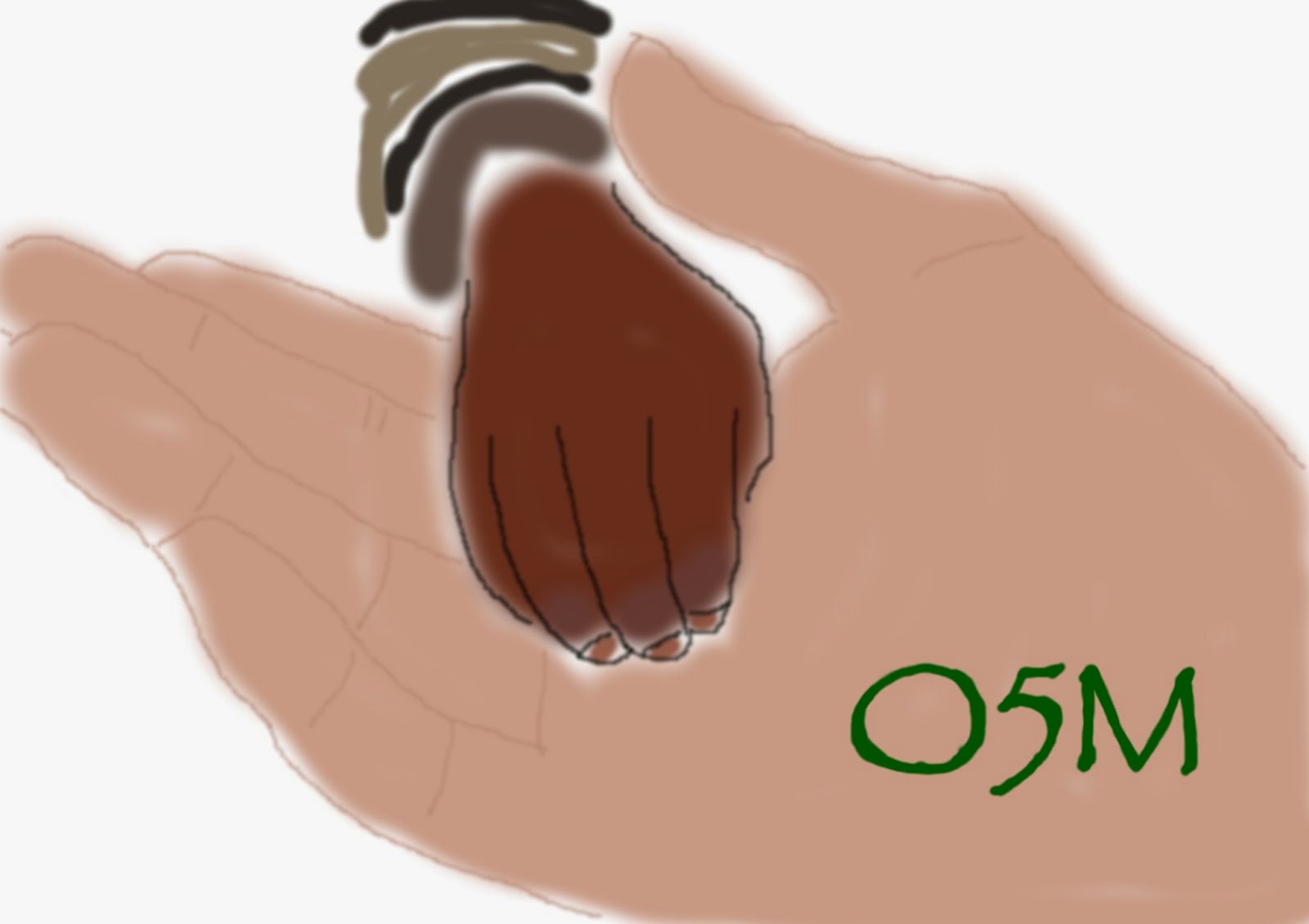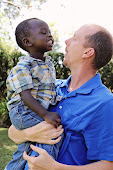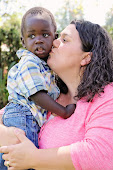The Kenyan
elections are being held on March 4th; a week from tomorrow.
As most of
you are aware, the elections five years ago, didn’t go very well. Thousands of people were killed and thousands
more became displaced from their homes.
For the past
few months, we had been hearing mixed messages about what people think will happen during these
elections. Some had said that Kenya
learned its lesson from the previous elections while others had said, they have
prepared themselves because of the previous elections.
As the US
embassy said, “Prepare for the worst; hope for the best.”
And that’s
what we’ve done.
We have (almost)
stocked up on necessary items as we don’t know if the transport of food and
other items will be unable to get to nearby cities, let alone our little town
of Kitale.
Things have
already started to heat up in areas around the country. Here’s just an article on one incident (http://www.nytimes.com/2013/02/22/world/africa/neighbors-kill-neighbors-in-kenya-as-election-tensions-stir-age-old-grievances.html?smid=fb-share&_r=0):
Neighbors Kill Neighbors as Kenyan Vote Stirs Old
Feuds
MALINDI, Kenya — In a room by the
stairs, Shukrani Malingi, a Pokomo farmer, writhed on a metal cot, the skin on
his back burned off. Down the hall, at a safe distance, Rahema Hageyo, an Orma
girl, stared blankly out of a window, a long scar above her thimble-like neck.
She was nearly decapitated by a machete chop — and she is only 9 months old.
Ever since vicious ethnic clashes
erupted between the Pokomo and Orma several months ago in a swampy, desolate
part of Kenya, the Tawfiq Hospital has instituted a strict policy for the
victims who are trundled in: Pokomos on one side, Ormas on the other. The
longstanding rivalry, which both sides say has been inflamed by a governor’s
race, has become so explosive that the two groups remain segregated even while
receiving lifesaving care. When patients leave their rooms to use the restroom,
they shuffle guardedly past one another in their bloodstained smocks, sometimes
pushing creaky IV stands, not uttering a word.
“There are three reasons for this war,”
said Elisha Bwora, a Pokomo elder. “Tribe, land and politics.”
Every five years or so, this stable and
typically peaceful country, an oasis of development in a very poor and
turbulent region, suffers a frightening transformation in which age-old
grievances get stirred up, ethnically based militias are mobilized and
neighbors start killing neighbors. The reason is elections, and another huge
one — one of the most important in this country’s history and definitely the
most complicated — is barreling this way.
In less than two weeks, Kenyans will
line up by the millions to pick their leaders for the first time since a
disastrous vote in 2007, which set off clashes that killed more than 1,000
people. The country has spent years agonizing over the wounds and has taken
some steps to repair itself, most notably passing a new constitution. But
justice has been elusive, politics remain ethnically tinged and leaders charged
with crimes against humanity have a real chance of winning.
People here tend to vote in ethnic
blocs, and during election time Kenyan politicians have a history of stoking
these divisions and sometimes even financing murder sprees, according to court
documents. This time around, the vitriolic speeches seem more restrained, but
in some areas where violence erupted after the last vote the underlying message
of us versus them is still abundantly clear.
Now, the country is asking a simple but
urgent question: Will history repeat itself?
“This election brings out the worst in
us,” read a column last week in
The Daily Nation, Kenya’s biggest newspaper. “All the tribal prejudice, all
ancient grudges and feuds, all real and imagined slights, all dislikes and
hatreds, everything is out walking the streets like hordes of thirsty undeads
looking for innocents to devour.”
As the election draws nearer, more
alarm bells are ringing. Seven civilians were ambushed and killed in
northeastern Kenya on Thursday in what was widely perceived to be a politically
motivated attack. The day before, Kenya’s chief justice said that a notorious
criminal group had threatened him with “dire consequences” if he ruled against
a leading presidential contender. Farmers in the Rift Valley say that cattle
rustling is increasing, and they accuse politicians of instigating the raids to
stir up intercommunal strife.
Because Kenya is such a bellwether
country on the continent, what happens here in the next few weeks may determine
whether the years of tenuous power-sharing and political reconciliation — a
model used after violently contested elections in Zimbabwe as well — have
ultimately paid off.
“The rest of Africa wants to know
whether it’s possible to learn from past elections and ensure violence doesn’t
flare again,” said Phil Clark, a lecturer at the School of Oriental and African
Studies in London. “With five years’ warning, is it possible to address the
causes of conflict and transfer power peacefully?”
Spurred on by Kenyan intellectuals and
Western allies, Kenya has overhauled its judiciary, election commission and the
nature of power itself. Dozens of new positions, like governorships and Senate
seats, have been created to ensure that resources flow down more equitably to
the grass roots, an attempt to weaken the winner-take-all system that lavished
rewards and opportunities on some ethnic groups while relegating others to the
sidelines.
But in places like the Tana River
Delta, where the clashes between Pokomos and Ormas have already killed more
than 200 people, the new emphasis on local government has translated into more
spoils to fight over. And there are nearly 50 governor races coming up across
Kenya, many of them quite heated.
“The Orma are trying to displace us so
we can’t vote,” said Mr. Bwora, the Pokomo elder. “They have burned our
villages, even our birth certificates. How are we supposed to vote then?”
The Orma accuse the Pokomos of doing
precisely the same thing, right down to the burning of birth certificates.
On the national stage, two of Kenya’s
most contentious politicians — Uhuru Kenyatta and William Ruto — are running on
the same ticket for president and deputy president. Both have been charged by
the International Criminal Court with crimes against humanity stemming from the
violence last time. Mr. Kenyatta, a deputy prime minister and son of Kenya’s
first president, is accused of financing death squads that moved house to house
in early 2008, slaughtering opposition supporters and their families, including
young children.
He could quite possibly be elected
Kenya’s next president and find himself the first sitting head of state to
commute back and forth from The Hague, potentially complicating the typically
cozy relationship between Kenya and the West.
There is a growing perception among
many members of Mr. Kenyatta’s ethnic group, the Kikuyu, and Mr. Ruto’s, the
Kalenjin, that they must win this election in order to protect their leaders
from being hauled off to a jail cell in Europe, which is raising tensions even
higher.
Most analysts here feel this election
will be turbulent, though some argue it will not be as bad as last time.
“Things are different,” said Maina
Kiai, a prominent Kenyan human rights advocate. For instance, he noted, it was
the Kikuyu and Kalenjin who fought one another in the Rift Valley in 2007 and
2008, but now many members of those two groups are on the same side because
their leaders have formed a political alliance.
“There may be new arenas of violence,”
Mr. Kiai said. “But I don’t think the extent of violence will be the same.”
There is also a keen awareness of how
much there is to lose. The Kenyan economy flatlined after the turmoil of the
last election. But now it has recovered mightily, spawning a dizzying number of
new highways, schools, hospitals, malls, wine bars, frozen yogurt stores, even
free samples in the supermarket — evidence of Kenya’s position on this
continent as home to a deep and booming middle class.
Many nations in this region depend on
Kenya, as demonstrated by the economic chaos caused downstream during the last
election when mobs blockaded Kenya’s highways and sent fuel prices spiking as
far away as the Democratic Republic of Congo.
Another safety valve may be the courts,
which are now considered much more independent, one of the biggest achievements
since the last election. Kenya’s new judiciary is led by a former political
prisoner and widely respected legal mind, Willy Mutunga,
the chief justice, who said he was threatened this week.
The hope is that if any election
disputes arise between Mr. Kenyatta and the other front-runner, Raila
Odinga, Kenya’s prime minister, who says he was cheated out of
winning last time, Justice Mutunga will step in — before people on the streets
do.
But the Tana River Delta remains a
blaring red warning sign, and there have been suspicions that political figures
are deliberately fanning old disputes, in this case over land.
One leading Pokomo politician, who was
an assistant minister, was recently arrested and accused of incitement, though
the case was soon dropped. The allegation echoed the International Criminal
Court cases, which assert that behind the ground-level mayhem in 2007 and 2008
were political leaders who incited their followers to kill for political gain.
Up and down the crocodile-infested Tana
River, Pokomo and Orma youth are now patrolling the banks with spears and rusty
swords. The result is a grim, sun-blasted tableau of ethnically segregated but
parallel villages mired in the same poverty, misery and fear.
So pray for
us in Kenya. Pray for the politicians of Kenya. Pray for the people of Kenya.
Pray for us serving here in Kenya. No
one wants to see a repeat of what happened five years ago. I know I sure don’t.
I will
continue to update as best as I can on how things are going on before, during
and after the elections.
Much Love,
Meredith
Meredith




